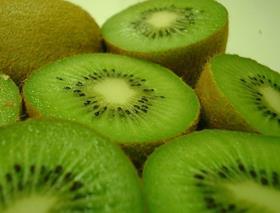
Leading industry figures in Italy have heavily criticised the sale of early new-season kiwifruit to the Russian market, arguing that the practice jeopardises the good image of the Italian kiwifruit sector and risks damaging the trade's relationships with consumers and customers.
With officials from agricultural organisation Coldiretti's Verona office describing the Italian kiwifruit presently being sold in Russia as 'hard and small as walnuts, as sweet as a piece of wood', there is grave concern among the Italian fresh produce business that such products – shipped early to take advantage of high demand and good prices – will cause irrevocable damage to the country's standing as a supplier of high-quality produce.
The Italian kiwifruit industry imposes cut-off points every year, before which shipments to overseas markets and to European customers must not take place.
The embargos are designed to ensure that the right levels of sweetness and firmness are achieved before the fruit reaches consumers.
However, companies flouting the rules, which stipulate that harvesting must not commence before 10 October and sales must not occur before 15 November, can expect to receive fines of €1,000.
'This is about respecting kiwifruit's profitability and marketing, not just a matter of respect for the law,' said a spokesperson for Coldiretti. 'This is to safeguard the fruit's image and therefore its competitiveness.'
According to Davide Vernocchi, president of Italian cooperatives union Fedagri-Confcooperative, both kiwifruit and persimmons are being shipped from Italy too early.
'Seasonality is being ignored, harvests pre-empted and fresh produce is being put on sale in Italy and abroad as many as two months before the real date of ripening,' he said.
'During these weeks kiwifruit and persimmons, which have neither the taste nor the organoleptic qualities of fruit which ripens naturally, are being placed on these markets in more and more parts of Italy,' he continued.
He added that the decision to sell bitter fruit early was based on 'a desire to get on the market before competitors and attract high prices'.
'We're talking about clear attempts at speculation which risk damaging the image of our country's high-quality fresh produce and generating disaffection among consumers.'



